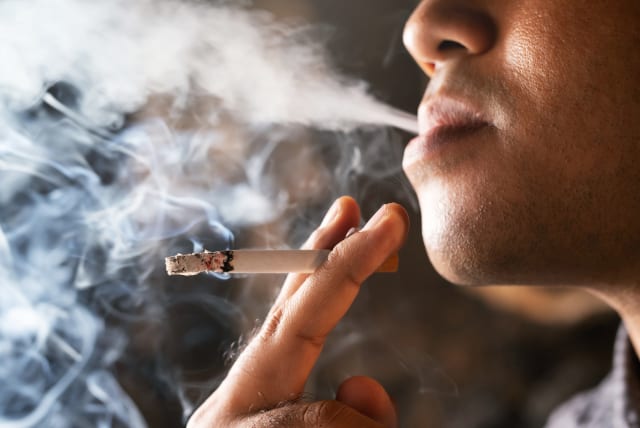Smokers beware: Plastic surgery risks you need to know

Plastic surgeons caution against the risks of combining smoking with plastic surgery, urging smokers to quit for better outcomes and health.
Are you a smoker planning to undergo plastic surgery? It's time to reconsider.
The Association of Aesthetic Plastic Surgeons in Israel has highlighted crucial insights about the nexus between smoking and plastic surgery. Their recommendation? Seize the chance to quit smoking and embark on a healthier journey.
Increased chance of complications
Smoking amplifies surgical risks, particularly under general anesthesia. The interplay of general anesthesia and cigarettes poses hazards. Smoking impairs lung function, heightening the likelihood of complications such as blood clot formation, pulmonary embolism, or stroke.
Delayed healing process
Smoking hampers the healing process by diminishing blood flow to both skin and underlying tissues. This retards post-surgery recovery. Persistent smoking narrows blood vessels around the surgical site, curtailing blood supply. In contrast, quitting smoking bolsters blood circulation, fostering swift healing after the procedure.
Higher chance of scarring
Post-surgery, scar healing and incision fusion are pivotal for recovery. Nicotine and tobacco byproducts in the bloodstream impede this process, inviting slow healing, stitch ruptures, and local infections. Conversely, quitting smoking weeks before major surgery bolsters immunity, lowering infection risks. This expedites efficient healing, positively affecting scar appearance.
Contrary to a common misconception, E-cigarettes that contain nicotine are not exempt from these risks. Despite lacking combustion byproducts, they carry nicotine, detrimental to healing.
Dr. Meir Cohen, Chair of the Association of Aesthetic Plastic Surgeons, stressed: "Every aesthetic procedure entails risks. To preemptively mitigate some, stopping smoking a few weeks prior readies the body for surgery and ensuing recovery. Scientific research underscores that detoxification or quitting smoking at least a month before surgery significantly reduces complications risk during and post-surgery."
Dr. Cohen adds, "For those struggling to quit, an option is local anesthesia surgeries like the microlift, a mini-facelift for facial rejuvenation."
Experts emphasize that quitting smoking enhances not just surgical outcomes but overall health. While challenging, determination and support render it feasible.
The Israeli Association of Aesthetic Plastic Surgeons urges prospective plastic surgery candidates under general anesthesia to quit smoking. They endorse resources like the Cancer Society's self-renunciation guide, health fund's quitting workshops, and the Ministry of Health's national smoking cessation helpline.
Jerusalem Post Store
`; document.getElementById("linkPremium").innerHTML = cont; var divWithLink = document.getElementById("premium-link"); if (divWithLink !== null && divWithLink !== 'undefined') { divWithLink.style.border = "solid 1px #cb0f3e"; divWithLink.style.textAlign = "center"; divWithLink.style.marginBottom = "15px"; divWithLink.style.marginTop = "15px"; divWithLink.style.width = "100%"; divWithLink.style.backgroundColor = "#122952"; divWithLink.style.color = "#ffffff"; divWithLink.style.lineHeight = "1.5"; } } (function (v, i) { });

